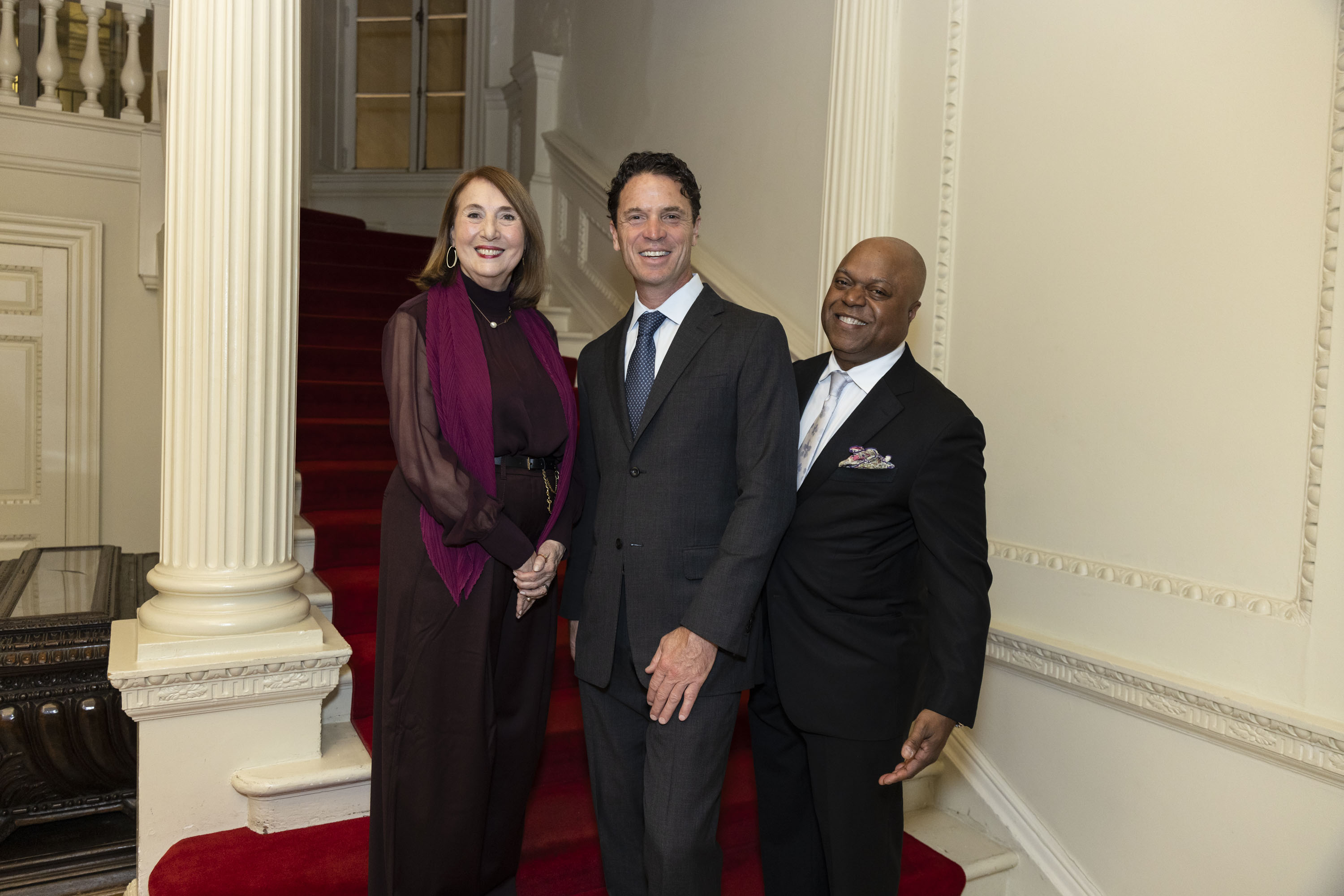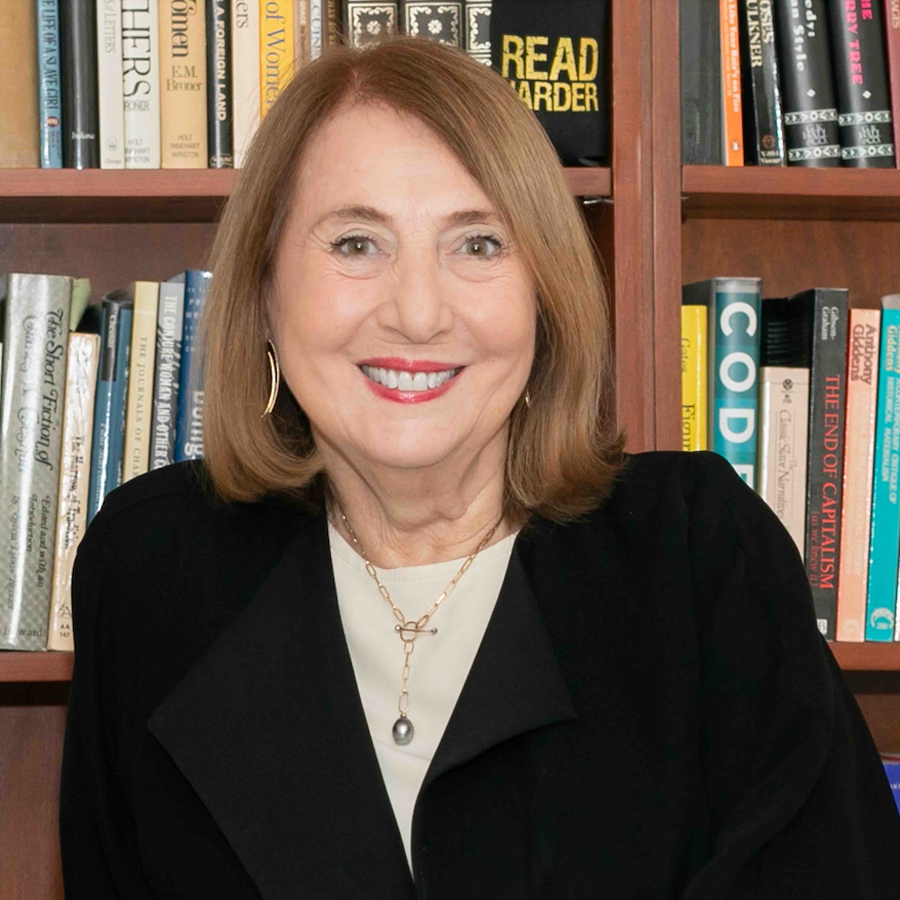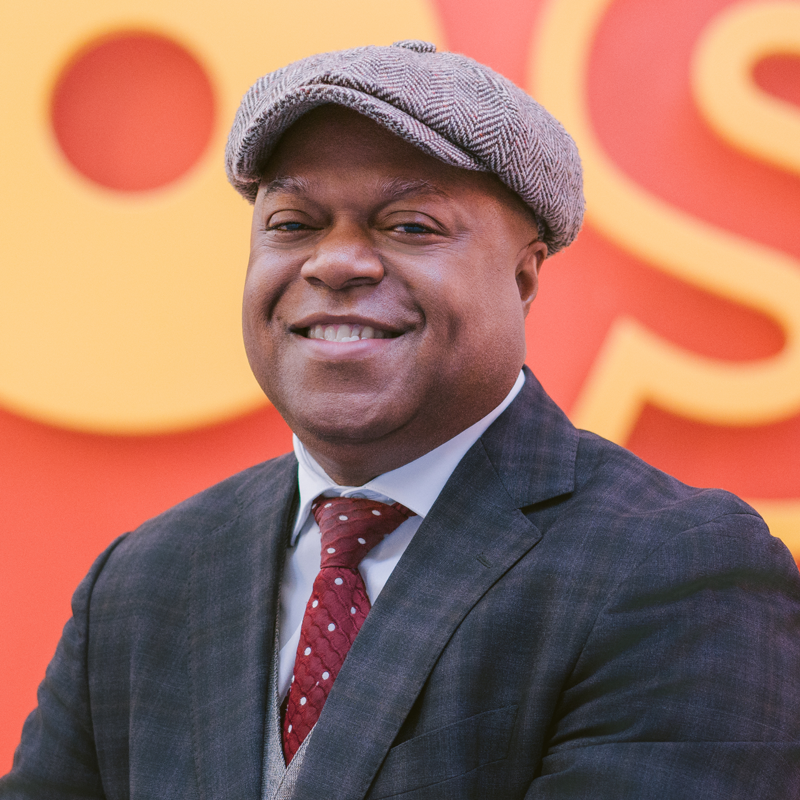News & Events
‘They are shaping the future now’: 2025 McGraw Prize in Education winners honored for transforming learning at every stage

Education isn’t waiting for tomorrow—it’s being reinvented today. That was the message at the 2025 Harold W. McGraw, Jr. Prize in Education celebration, where four trailblazers were honored for transforming how people learn at every stage of life.
Held at the Morgan Library & Museum in New York City, the Nov. 13 ceremony honored Cathy N. Davidson, Frederic Bertley, and Joe Wolf and Rapelang Rabana, recipients of this year’s McGraw Prizes in Higher Education, Lifelong Learning, and Pre-K–12 Education, respectively. Their work spans classrooms, communities, and continents—proving that bold ideas can change lives.
“Since 1988, the McGraw Prize has been a singular recognition for the world’s most innovative, inspiring, and impactful changemakers in education,” said Penn GSE Dean Katharine Strunk. “Tonight’s honorees have shaped the future of education in extraordinary ways — expanding opportunity, inspiring learners, and lifting lives all over the world. We are grateful and we are inspired.”
Awarded annually by the University of Pennsylvania Graduate School of Education, the McGraw Prize is one of the most prestigious honors in education. Winners receive a Prize sculpture and a $50,000 award, and join a network of more than 100 innovators — teachers, scholars, nonprofit leaders, entrepreneurs, and public servants — who are reimagining education across the globe.
Harold “Terry” McGraw III, former chairman, CEO, and president of The McGraw-Hill Companies, praised the honorees as visionaries who represent what’s best in the field.
“Tonight’s winners, like the more than 100 individuals before them, honor my father’s commitment to education and literacy by their passion and achievements,” McGraw said. “Please raise a glass to this newest class of McGraw Prize winners, who bring creativity, passion, and impact to the lives of countless students, their families and our society.”
Michael Golden, Vice Dean of Innovative Programs and Partnerships at Penn GSE, offered a reflection on the Prize’s impact.
“These winners remind us what education can do when it’s driven by purpose, equity and imagination,” Golden said. “They aren’t just reacting to the future — they’re creating it.”
Winners are nominated by peers and selected through a rigorous, three-round judging process, culminating in a review by a distinguished panel of education leaders. Nominations for the 2026 McGraw Prize in Pre-K–12 Learning, Higher Education, and Lifelong Learning are now open.
Higher Education: Cathy N. Davidson
A pioneer in radical pedagogy and institutional change, Cathy N. Davidson has spent her career reimagining the purpose and possibilities of higher education, often by challenging the very structures that define it. A prolific scholar and co-founder of HASTAC (Humanities, Arts, Science, and Technology Alliance and Collaboratory), Davidson has championed “collaboration by difference” — a philosophy rooted in equity, access, and the belief that students learn best when they can learn from one another.
In her acceptance speech, Davidson reflected on her own unexpected path through academia, shaped in part by an undiagnosed learning disability. Her early struggles — and the difference one test made in how she was perceived by the system — deepened her commitment to ensuring that all students have access to meaningful, transformative education.
“Education takes a village. It takes community. It takes heart and strength and love,” Davidson said. “Collaboration by difference. Turning mirrors into windows for all. We have a very, very long and hard fight ahead if we are going to save higher education at this perilous moment.”
Davidson is a distinguished professor at the CUNY Graduate Center and founding director of the Futures Initiative, which fosters equity and innovation in higher ed. She has long argued that higher education must be bold, inclusive, and mission-driven, especially at a time when those values are under attack. Accepting the McGraw Prize, she reaffirmed her commitment to the “all” in education.
Lifelong Learning: Frederic Bertley
By reenvisioning how science is shared, taught, and experienced, Dr. Frederic Bertley has ignited a lifelong love of STEM learning in millions.
As president and CEO of the Center of Science and Industry (COSI) in Columbus, Ohio, he has transformed a regional science museum into a globally recognized leader in STEM education.
In his remarks, Bertley invoked the legacy of the space race, the launch of Sputnik, and the ensuing science boom.
“This space race narrative is more than a NASA story. It’s more than an American versus Russian story. It’s a global inspiration and innovation story—one that highlights the importance of STEM education,” he said. “We must educate the masses, for as we all know, genius knows no race, religion, gender, or socioeconomic status.”
From Learning Lunchbox kits to Emmy Award–winning media, Bertley’s reach extends well beyond museum walls. Accepting the McGraw Prize, he reflected on the broader role of science education in shaping a more just and equitable world.
“Education should be a right, not a privilege,” he said. “Thank you for celebrating one small step for this man—and one giant leap for science literacy and lifelong learning for mankind.”
Pre-K–12 Education: Joe Wolf and Rapelang Rabana, Imagine Worldwide
In many parts of the world, access to quality education is limited not by motivation but by resources. That’s the challenge Joe Wolf and Rapelang Rabana set out to solve with Imagine Worldwide, a nonprofit bringing personalized, tech-enabled learning to children across Sub-Saharan Africa, many of whom lack basic literacy despite attending school.
Imagine’s model utilizes rugged, solar-powered tablets to deliver offline instruction in local languages, enabling students to learn at their own pace and allowing teachers to focus on classroom support. The impact has been significant: improved literacy rates, greater attendance, rising confidence, and a growing sense of equity in classrooms long stretched thin.
“We cannot ask children to wait for a future that may never arrive,” said Wolf, who accepted the award on South Africa-based co-winner Rabana’s behalf, who was unable to attend the gala. “At Imagine, we ask a different question: What if every child — no matter where they are born — could master the foundational skills they need to thrive and realize their potential?”
With proven results in multiple countries, Imagine is now reaching nearly 1 million children annually, with plans to serve 5 million by 2030. The organization’s success is driven by four core pillars: access, affordability, efficacy, and sustainability. And at the heart of it, Wolf said, is belief in every child’s right to learn.
“One of my favorite quotes comes from a young girl in Malawi named Ayisha: ‘When I make a mistake, the tablet does not move on to the next student. It asks me to try again. And when I try, I get the right answer.’”
Imagine’s model is designed not to replace teachers or systems, but to strengthen them. By empowering governments and communities to scale learning effectively, the organization is helping to rewrite what opportunity looks like from the ground up.
More than recognition, the McGraw Prize highlights a broader truth: education is not a fixed system, but a force shaped by bold ideas and the people brave enough to pursue them.





